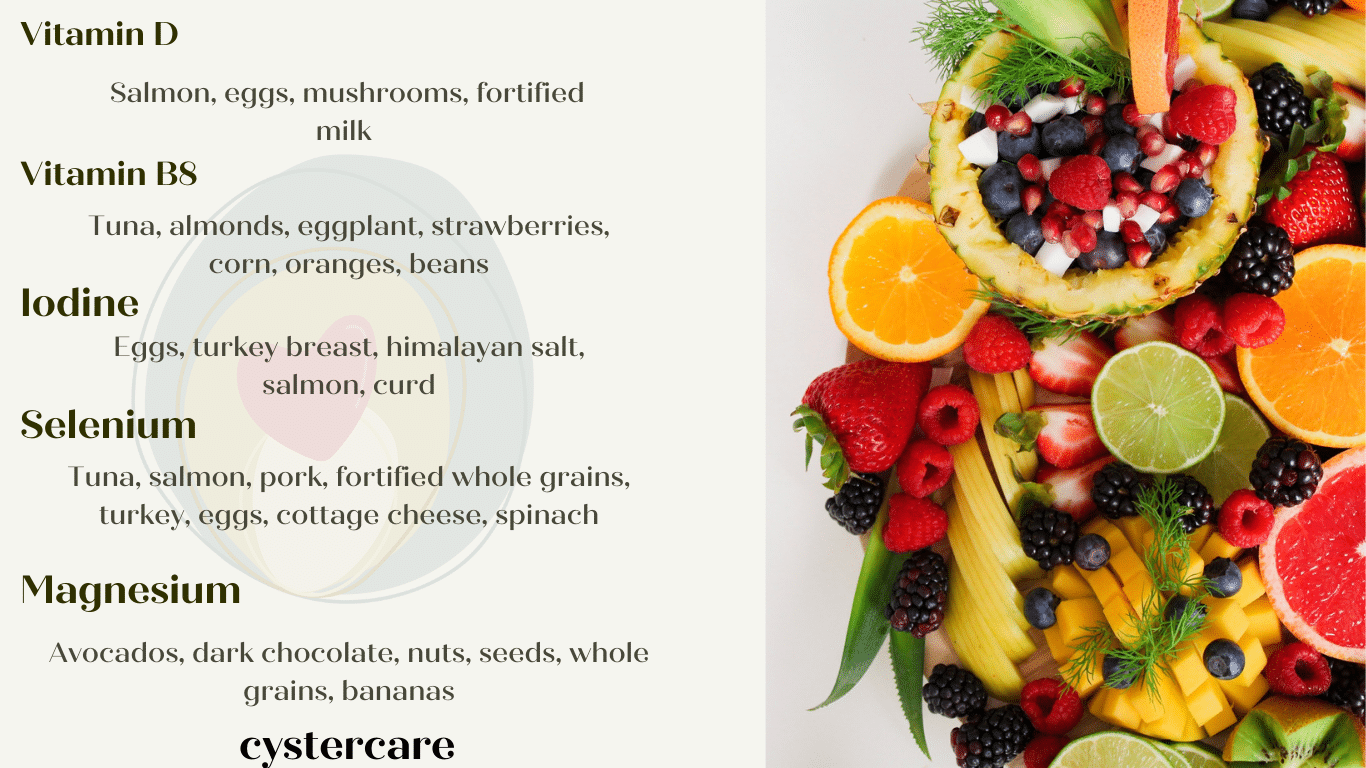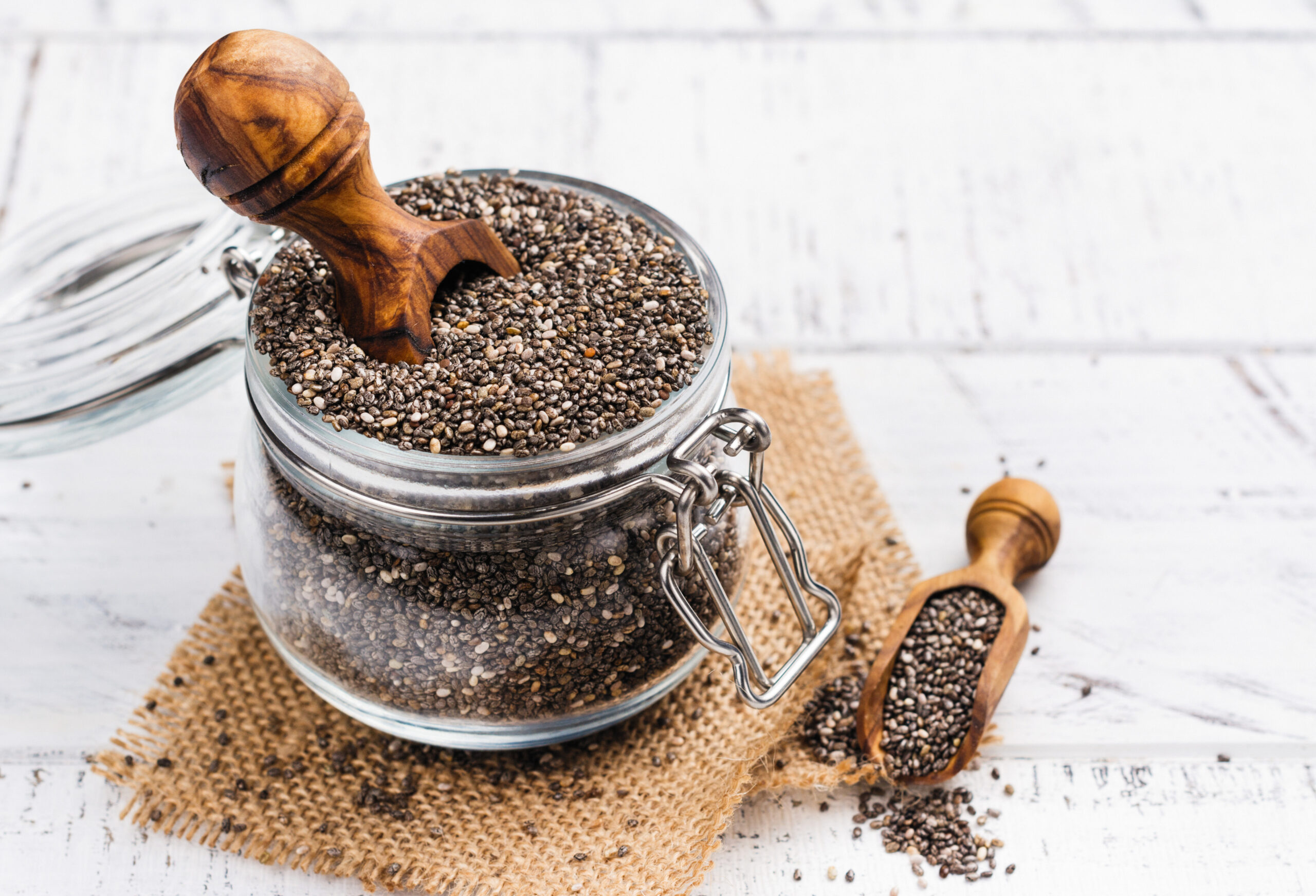Priya
M.Sc Nutrition and Dietetics
Polycystic ovary syndrome (PCOS) is a common hormonal disorder seen among women of reproductive age. Women with PCOS produce higher than normal amounts of male hormones. This hormonal imbalance causes them to skip their menstrual periods and makes it harder for them to get pregnant. Polycystic primarily means ‘many cysts’ and cysts are filled with fluid and immature eggs.
How Your Diet Affects PCOS
Studies suggest that over 70% of women suffering from PCOS have insulin resistance, which means that the body’s cells stop responding to insulin in a normal manner, resulting in the insulin blood levels shooting above normal. If you have insulin resistance, your body may try to pump out high levels of insulin to keep your blood sugar levels normal. Too-high levels of insulin can cause your ovaries to produce more androgens, like testosterone.
Insulin resistance may also be caused by having a higher body mass index(BMI). Insulin resistance can make it harder to lose weight, which is why people with PCOS often experience this issue. A diet high in refined carbohydrates, like starchy and sugary foods, can make them insulin resistant, and therefore weight loss, more difficult to manage.
Women suffering from PCOS should avoid the following foods: In general, people on a PCOS diet should avoid foods already widely seen as unhealthful.
These include:
- Anything made with white flour
- Sugary drinks.
- Fried foods.
- Processed meats (ex. sausages, hamburgers, and hot dogs)
- Refined Carbohydrates (ex. white bread, pasta, and pastries)
- Processed food (ex. cakes, candy, sweetened curd, ice creams with excess sugar)
- Muffins
- Breakfast pastries
- Sugary desserts
On a PCOS diet, you may want to reduce consumption of beverages like soda and juice, which can be high in sugar, as well as inflammation-causing foods, like fries, margarine, and red or processed meats. However, before removing some foods from your diet, it’s best to speak with a doctor. They can recommend an eating plan that is right for you and your individual needs.
What to eat if you have PCOS
The basic suggestions for a PCOS diet are to focus on whole grains, fresh produce, and plant-based proteins while limiting sugar, processed food, and trans fat. Depending on your overall health needs, you may need to adjust your intake of specific macronutrients (fat, protein, carbohydrates) or add supplements.
You can use this general list as a starting point, but keep in mind that your healthcare provider or dietician may suggest that you include or avoid certain foods as part of your specific PCOS diet plan.
A low glycemic index (GI) diet: The body digests foods with a low GI more slowly, meaning they do not cause insulin levels to rise as much or as quickly as other foods, such as some.
- High protein foods, such as lean meat and fish.
- Dairy products, such as milk and natural curd
- Unsweetened soy milk.
- Vegetables, such as broccoli, green peas, and leafy greens.
- Low-sugar fruits, such as apples, oranges, and blueberries.
- Porridge made with steel-cut oats and water.
An anti-inflammatory diet: Anti-inflammatory foods, such as berries, fatty fish, leafy greens, and extra virgin olive oil, may reduce inflammation-related symptoms, such as
- Tomatoes.
- Olive oil.
- Green leafy vegetables, such as spinach, kale, and collards.
- Nuts like almonds and walnuts.
- Fatty fish like salmon, mackerel, tuna, and sardines.
- Fruits such as strawberries, blueberries, cherries, and oranges.
The dash diet: Doctors often recommend the Dietary Approaches to Stop Hypertension (DASH) diet to reduce the risk or impact of heart disease. It may also help manage PCOS symptoms. such as
- Fruits. Choose a variety of fresh fruits, such as apples, oranges, and bananas. ...
- Vegetables. ...
- Low-fat dairy products. ...
- Grains. ...
- Nuts, seeds, and legumes. ...
- Lean meats, poultry, and fish. ...
- Condiments, seasonings, and spreads.
Do I need to follow a diet that is extra high in protein?
No. Extremely high protein diets (such as the Atkins, Paleo, or Ketogenic diet) are not an ideal diet option because they can be low in some important nutrients such as fiber, B vitamins, and vitamin C. It’s also important to remember that even if you limit your carbohydrate intake, overeating fat or protein can cause unintentional weight gain. You should aim for a way of eating that has a balance of protein, high-fiber carbohydrates, and some fat.
Vitamins and Minerals Important for PCOS Symptom Relief and Food Sources

Don’t Skip your daily meals
One of the biggest mistakes that women tend to make during a diet is to skip meals. It is one of the unhealthiest ways to lose weight and it will not help you in any way other than filling your body up with acidity. Hence, instead of skipping meals, consume moderate amounts of whole grains, protein, and healthy fats at regular intervals.
How can cystercare nutritionists help you with fighting PCOS?
Our highly specialized nutritionists will analyze your PCOS condition and help you to opt for a holistic diet plan. We will get to know your food habits in detail and provide you with a custom-made nutritional chart and diet plan. And our nutritionist will be there to help you with any queries and doubts you may have, our unlimited through chat support. We will adapt to your body’s signals and keep on customizing your diet until your body starts to respond positively. Our nutrition program will be integrated with our fitness/weight loss program, thus helping you out on both the frontier for better results. So what are you waiting for? Sign up now and start on your much-needed journey of PCOS reversal!
Disclaimer:
Content on CysterCare is provided for informational purposes only and is not intended as medical advice, or as a substitute for medical advice given by a medically authorized healthcare provider or a doctor.
References
Frequently Asked Questions
Yes, a balanced diet focusing on whole grains, fresh produce, and plant-based proteins while limiting sugar and processed foods can help manage PCOS symptoms.
In a PCOS diet, it's best to avoid foods high in refined carbohydrates, sugary drinks, fried foods, and processed meats.
Yes, foods with a low GI, which are digested more slowly and cause slower insulin responses, can be beneficial for PCOS management.
An anti-inflammatory diet that includes foods like berries, fatty fish, and leafy greens may help reduce inflammation-related PCOS symptoms.
No, extremely high-protein diets are not recommended for PCOS management. A balanced diet with a mix of protein, high-fiber carbohydrates, and some fat is ideal.
Priya
M.Sc Nutrition and Dietetics
Varshini
M.Tech Food Biotechnologist
Varshini
M.Tech Food Biotechnologist
Related Blogs
- Top 10 Benefits of Chia Seeds July 4, 2023
- Flaxseed: Health benefits, nutrition, and risksOctober 19, 2022
- Managing PCOS with holistic nutritionMarch 23, 2022






